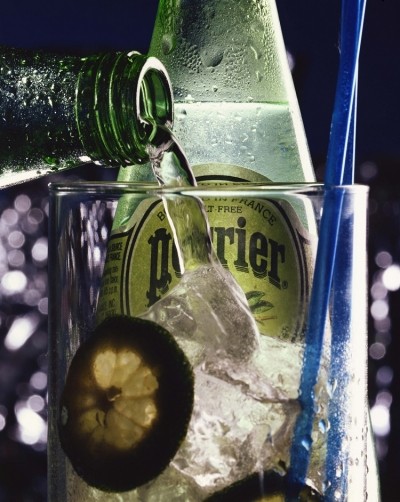The report, submitted to the government in October last year by French food agency ANSES, was viewed by news media Le Monde and public service broadcaster Radio France. It has not been seen by FoodNavigator, nor by Nestlé.
According to the media outlets, the report confirms water sources used by Nestlé for its natural mineral water brands – including Perrier, Contrex, Vittel, and Hépar – were contaminated with bacteria, pesticides, and so-called forever chemicals PFAS.
Bacteria cited include E. coli and intestinal enterococci, both of which may indicate possible faecal waste contamination. EU regulations on natural mineral waters specify these waters must be free of bacteria, even prior to bottling.
Intended for France’s Ministry of Health, the ANSES report raises concerns about the ‘health quality’ of these bottled water brands and recommends a ‘reinforced surveillance plan’, claim the journalists.
What’s going on with Perrier and Vittel?
The leaked report follows accusations that Nestlé, the largest bottled water company in the world, had been selling bottled tap water as mineral water and using illegal treatment methods to do so.
According to Directive 2009/54/EC, only a few treatment processes are permitted in the production and processing of natural mineral water in Europe. Nestlé admitted to straying from the list by using ultraviolet treatments and activated carbon filters to maintain food safety. The company is no longer using these two methods, Nestlé claims.
Earlier this year, consumer watchdog Foodwatch filed a lawsuit against Nestlé’s bottled water division as well as Sources Alma, whose brands include Cristaline and Sant Antonin.
Now, given ANSES’ ‘insufficient level of confidence’ to ‘guarantee the health quality of finished products’, the watchdog is calling for the bottled water in question to be removed from shelves and that all importing countries be informed immediately.
Foodwatch has also raised concerns that the French government was aware of the potential safety hazard, but did not inform consumers or the European Commission. “The lack of transparency is not only on the part of Nestlé Waters and Sources Alma, but also of the French authorities, and it raises several serious questions,” noted the watchdog.
“Nestlé’s bottled waters must be recalled, and the other Member States of the EU must be informed now,” stressed Foodwatch information director Ingrid Kragl. “The European Water Directive is crystal clear: when mineral water is polluted, there is no doubt that bottling and marketing must be suspended.”
Nestlé: All our French natural mineral waters are safe to drink
According to journalists at Le Monde at Radio France, ANSES suggests the ministry implement a monitoring plan for Nestlé factories ‘considering the multiple findings of contamination of faecal origin’ and the ‘notable chronic presence of micropollutants’.
Having not seen the ANSES report, Nestlé told us it is unable to comment on the specifics, but did confirm all its French natural mineral waters are safe to drink, and each brand’s unique mineral composition is as shown on the label.
“Over the last three years, Nestlé Waters France has implemented a transformation plan at our sites in transparency with, and under the strict control of, the relevant authorities, sharing all data relating to our natural mineral waters,” a spokesperson told FoodNavigator.
What controls does Nestlé have in place?
According to Nestle, its waters division in France:
- operates under an integrated quality management system shared with and controlled by the relevant authorities to ensure the safety of its products. Its quality management procedures include filtration and strict cleaning of the water pipes and more than 1,500 daily analyses spanning multiple parameters (including physio-chemical, microbiological and sensory aspects) to continue to ensure food safety and quality of its natural mineral waters throughout the production process.
- strengthened its quality controls as part of the transformation plan at the Vosges and Vergèze sites. Its testing analyses are constantly shared with the authorities who regularly test its mineral waters both at source and the finished product to confirm food safety and quality standards are met and in compliance with the applicable regulatory requirements.
